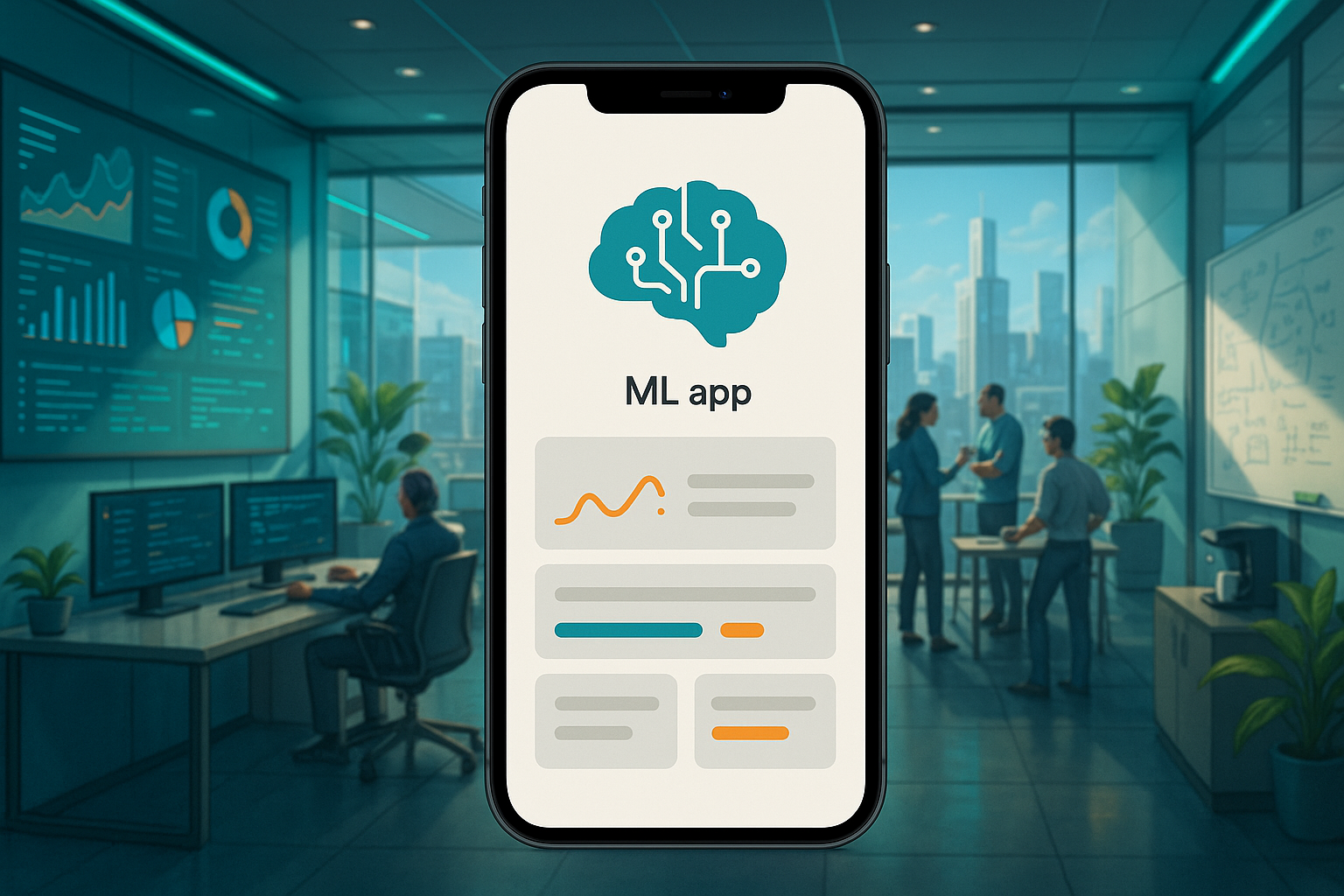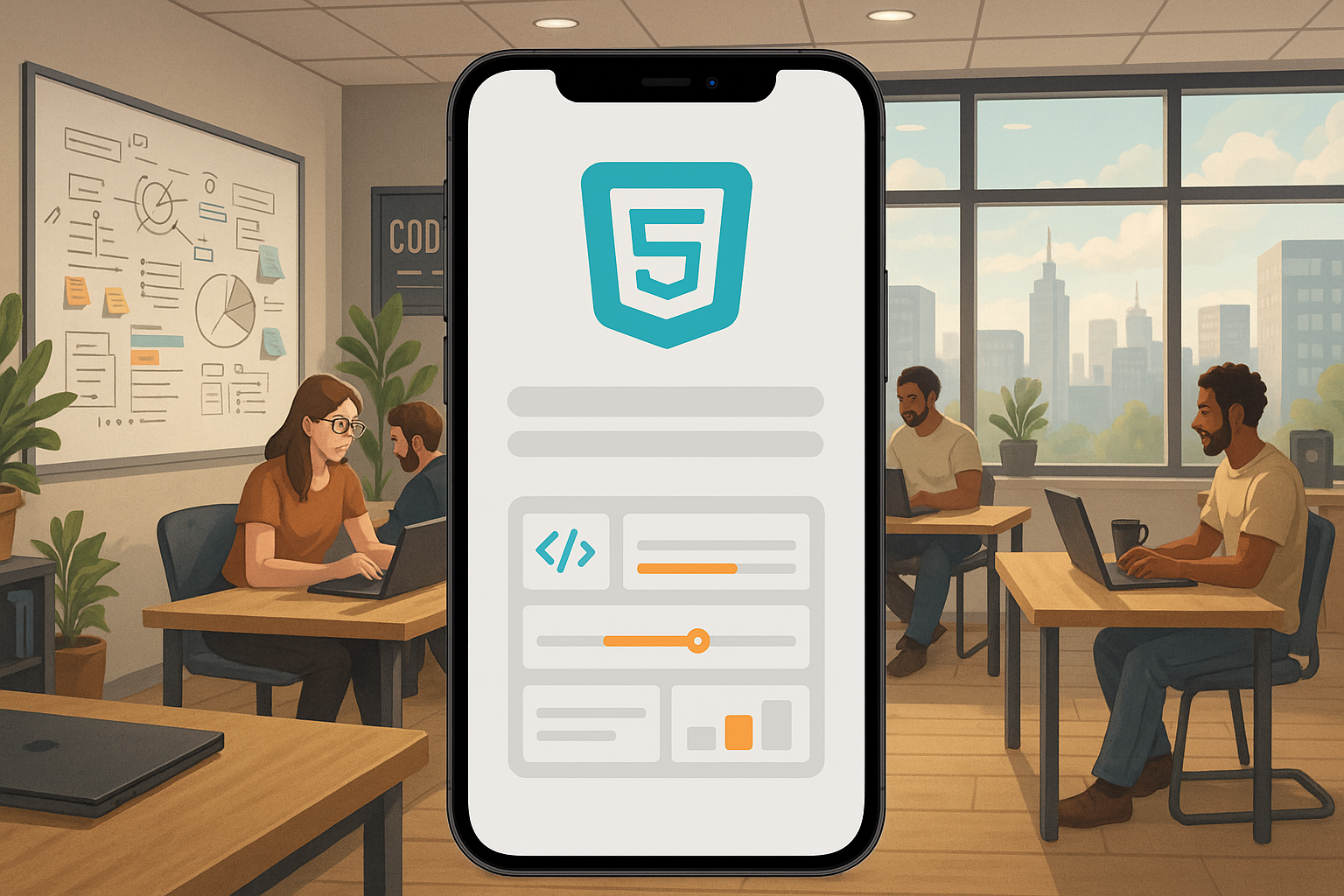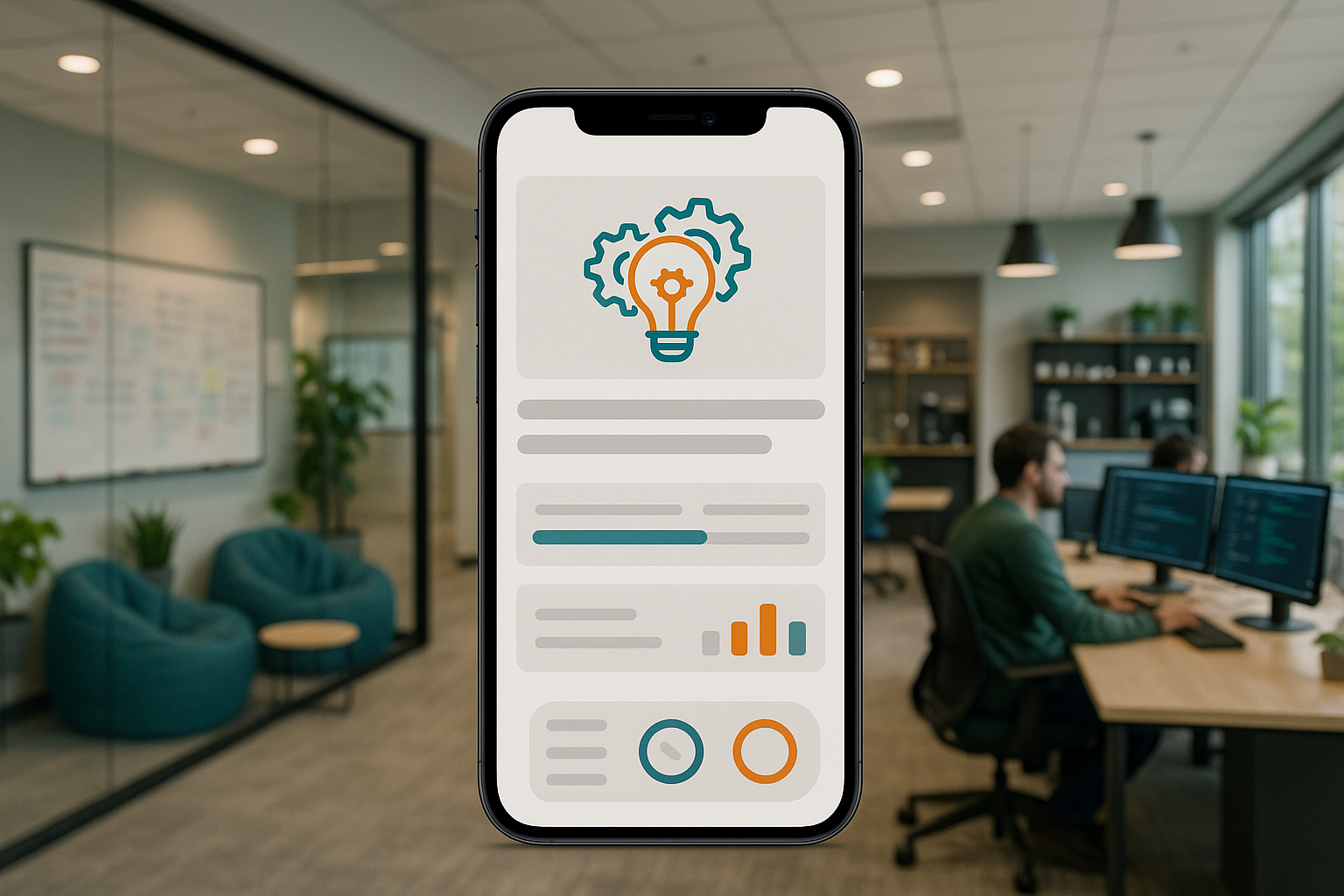Machine Learning (ML) is no longer a futuristic concept; it’s a transformative technology powering the most innovative applications on the market today. From the recommendation engines that suggest your next favorite show to the intelligent chatbots that provide instant customer support, ML is redefining user experiences and creating immense business value. However, harnessing this power is a monumental task. According to Gartner, a staggering 85% of Big Data projects fail, with deployment complexity being a top contributor to this high failure rate.
The journey from a brilliant ML model on a data scientist’s laptop to a fully operational, scalable application is fraught with challenges. Companies, especially startups, struggle to find the right talent, manage complex infrastructure, and navigate the costly and time-consuming process of deployment. Models often end up collecting dust in a cloud server, their potential to solve business problems unrealized. This is where a strategic partner becomes invaluable.
This comprehensive guide will walk you through the world of ML app development. We will explore what an ML app is, detail the significant hurdles of building one in-house, discuss the various types of applications you can create, and provide a realistic breakdown of the costs involved. Finally, we will introduce the industry’s leading development companies that can turn your vision into a reality.
As a top US AI-powered app development firm with over 20 years of experience, we at MetaCTO specialize in navigating these complexities. We don’t just build apps; we build, grow, and monetize them. We’ve guided over 120 projects to successful launches, helped our clients secure over $40 million in fundraising, and maintained a 5-star rating on Clutch. We understand the entire lifecycle, from validating an idea with a Rapid MVP Development in as little as 90 days to scaling an application for a growing user base. This article leverages our deep expertise to provide you with a clear roadmap for your ML app development journey.
What is a Machine Learning App?
At its core, a machine learning application is a software program that leverages ML algorithms to learn from data, identify patterns, and make decisions or predictions with minimal human intervention. Unlike traditional software, which follows explicit, hard-coded rules, ML apps are dynamic. They improve their performance over time as they are exposed to more data. This capability allows them to tackle complex problems that would be nearly impossible to solve with conventional programming.
The applications of ML are vast and touch almost every industry. Here are some prominent examples of ML in action:
Personalization and Recommendations
This is one of the most visible uses of ML. When you browse Amazon, Netflix, or Spotify, you are interacting with sophisticated ML models.
- Recommendation Engines: Sites like Amazon, Netflix, and StitchFix use ML algorithms to analyze your past behavior—your viewing history, your purchases, what you’ve added to a cart—to recommend products, movies, or clothes tailored to your specific tastes.
- Personalized Marketing: ML helps marketers move beyond one-size-fits-all campaigns. By analyzing customer data, ML models can identify which offerings are most likely to appeal to a specific individual, power personalized email campaigns, and monitor open and clickthrough rates to optimize outreach in real time.
Customer Support and Communication
ML has revolutionized how businesses interact with their customers, providing faster and more efficient support.
- Intelligent Chatbots: Many e-commerce sites use text-based chatbots and virtual agents to handle customer queries. One bank, using a watsonx Assistant, found its chatbot answered 96% of customer questions correctly and in multiple languages. Facebook Messenger also uses ML-powered chatbots for customer service.
- Voice Assistants: Virtual assistants like Amazon’s Alexa and Apple’s Siri use ML for speech recognition and natural language processing (NLP) to understand and respond to voice commands, set alarms, or compose messages.
- Email Management: Google’s Gmail uses ML algorithms to automatically filter emails into categories like Primary, Social, and Promotions, and to detect and quarantine spam. Tools like Levity use text classification algorithms to identify and categorize incoming emails, routing them to the right people for faster action.
Security and Fraud Detection
In an increasingly digital world, ML is a critical line of defense against cyber threats and financial fraud.
- Cybersecurity: Antivirus programs use ML techniques to detect and block new forms of malware. Reinforcement learning models are trained to identify and respond to cyberattacks and system intrusions in real time.
- Fraud Detection: Banks and financial institutions heavily rely on ML to protect their customers. Models are trained on vast datasets of transactions to recognize suspicious online activities or atypical patterns that require further investigation. ML classification algorithms are also used to identify phishing attacks and label events as fraudulent.
Healthcare and Medical Diagnostics
ML is making significant inroads in healthcare, leading to more accurate diagnoses and personalized treatment plans.
- Medical Imaging: AI-enabled computer vision is used to analyze mammograms, screen for lung cancer, and find bone fractures that are difficult for the human eye to see. ML has been shown to improve the detection rate of breast cancers in mammograms, reducing the 40% of cases missed by doctors.
- Disease Prediction: Geisinger Health System uses AI and ML to analyze clinical data and predict which patients are at the greatest risk for sepsis, a life-threatening condition.
- Drug Discovery: Pharmaceutical companies like Pfizer use IBM Watson’s ML capabilities to accelerate the discovery of new medications by identifying the best candidates for clinical trials.
Transportation and Logistics
From your daily commute to the future of autonomous vehicles, ML is optimizing how we move.
- Navigation: Google Maps uses ML algorithms to analyze real-time traffic conditions, determine the fastest route, and estimate arrival times.
- Ride-Sharing: Applications like Uber and Lyft use ML to match riders with drivers, set dynamic pricing, and optimize driving routes by analyzing traffic patterns.
- Self-Driving Cars: The entire field of autonomous vehicles is powered by ML. Unsupervised ML algorithms process data from cameras and sensors, allowing the vehicle to understand its surroundings and make real-time driving decisions.
Reasons It Is Difficult to Develop an ML App In-House
While the potential of ML is immense, the path to building and deploying a successful ML application is riddled with obstacles. Many organizations underestimate the complexity and resource requirements, leading to project failure. Putting an ML model into production is often cited as the primary culprit for the problems companies face. Here are the key challenges of in-house ML development.
1. The Scarcity of Specialized Talent
Building an ML app is not a one-person job. It requires a dedicated team with a diverse and highly specialized skill set that is difficult and expensive to assemble.
- Finding Expertise: For many companies, especially startups, simply finding people with relevant machine learning expertise is a major challenge.
- A Full Team Is Required: A successful in-house implementation requires multiple roles:
- A Data Engineer to manage Machine Learning Operations (MLOps) and build the data pipelines.
- A Data Scientist to build and optimize the models.
- A Web Developer or software engineer to build the APIs that connect the model’s output to business applications.
2. The Overwhelming Technical Complexity
The technical infrastructure required to support an ML application from development to deployment is far more sophisticated than that for a standard software application.
- Complex Tooling: To do it yourself, you need to build or integrate a complex stack of technologies. This includes:
- An ELT (Extract, Load, Transform) tool to manage data ingestion.
- A data warehouse like BigQuery or Databricks to store and process data.
- A distributed computing framework like Spark to run algorithms at scale.
- A workflow management platform like Airflow to orchestrate data pipelines.
- An infrastructure scaling solution to handle fluctuating computational demands.
- Deployment is the Hardest Part: The largest chunk of work for data scientists isn’t building the model; it’s the tasks that come after. Deploying the results to a final destination, like a business application (e.g., Salesforce) via a webhook or API, is the most critical piece, yet it is often the most difficult to assemble. This complexity is why GoDaddy’s Director of Business Analytics stated that while their unit has many models, there are too many pain points to operationalize them.
3. The Prohibitive Cost and Time Investment
Building ML systems from scratch is an expensive and time-consuming endeavor, often with hidden costs that can derail a project.
- High Compute Costs: Training large-scale ML models requires an intensive amount of compute resources. Using GPU or CPU resources from cloud services like AWS and Google Cloud for extended training tasks is costly, and “unlimited” scaling can lead to runaway costs. Training a large language model (LLM) like ChatGPT can cost millions of dollars in computational resources alone.
- Lengthy Timelines: The process for a client to deploy an ML model from scratch typically ranges from one to three months. Organizations that build their own systems from scratch tend to spend significantly more time on model deployment.
- The Data Scientist’s Time Sink: Data scientists, who are highly paid specialists, are often required to spend most of their time on deployment rather than on core modeling tasks. A 2021 survey found that 38% of organizations spend more than half of their data scientists’ time just prepping and deploying trained models.
4. Critical Operational and Maintenance Hurdles
Once an ML app is deployed, the work is far from over. Maintaining and monitoring these complex systems presents its own set of significant challenges.
- Reproducibility and Consistency: Maintaining a consistent and reproducible build environment is critical. ML development involves long-running jobs, and without reproducibility, avoiding costly build errors is incredibly difficult.
- Testing and Validation: Determining an ML model’s correctness by inspection is nearly impossible. Due to the size and complexity of modern models, even a comprehensive test suite may fail to ensure their validity, making it difficult to trust their output.
- Monitoring Opaque Systems: The implementation of ML models can be opaque to users, making it a “black box.” This makes monitoring performance and diagnosing issues a constant struggle for many organizations.
- Security and Compliance: ML development often involves processing large amounts of sensitive user data. A vulnerability in the data pipeline or a failure to properly sanitize data could expose this information to attackers, creating significant security and compliance risks.
- Continuous Evolution: The field of ML moves at a breakneck pace. New research, datasets, and improved models emerge daily, requiring production models to be constantly updated to incorporate new features and learn from new data. Managing these frequent updates across multiple versions is a major challenge.
These challenges highlight why partnering with a specialized AI Development firm like MetaCTO is often the most strategic and cost-effective approach. We have the experienced team, established infrastructure, and proven processes to navigate these hurdles, allowing you to focus on your core business while we handle the technical complexities.
Different Types of ML Apps
Machine learning applications can be categorized based on the underlying algorithms they use to process data and generate insights. Understanding these types can help you identify the right approach for your business problem.
-
Classification Apps: These applications are designed to categorize data into predefined classes or labels. They answer questions like “Is this A or B?”. A classic example is an email filter that classifies messages as ‘spam’ or ‘not spam’. Other applications include fraud detection (labeling transactions as ‘fraudulent’ or ‘legitimate’) and medical diagnostics (classifying a tumor as ‘benign’ or ‘malignant’).
- Common Algorithms: Naïve Bayes, Support Vector Machine (SVM), Logistic Regression, Random Forests, K-Nearest-Neighbour.
-
Regression Apps: These apps are used for prediction and forecasting, aiming to predict a continuous value rather than a category. They are useful for analyzing trends and understanding relationships between variables. For example, a regression app could forecast a company’s sales for the next quarter, predict housing prices based on location and features, or estimate a customer’s lifetime value.
- Common Algorithms: Simple Linear Regression, Logistic Regression (for binary outcomes), Random Forests.
-
Clustering Apps: Unlike classification, clustering is an unsupervised learning technique used to group unlabeled data based on similarities. It is highly effective for market segmentation, where a business might group customers based on purchasing behavior to create targeted marketing campaigns. It can also be used to identify anomalies or group documents by topic.
- Common Algorithms: K-Means Clustering.
-
Recommendation Apps: As discussed earlier, these are perhaps the most well-known ML apps. They use algorithms to filter information and predict what a user might like. They are the driving force behind personalized content on platforms like Netflix, Spotify, and Amazon. These apps often combine techniques from classification, regression, and clustering to produce their powerful results.
-
Generative AI Apps: This is a rapidly emerging category of ML apps that can create new content. Powered by models like LLMs (e.g., GPT) and diffusion models (e.g., DALL·E), these applications can generate text, images, code, and even music. They are used to power advanced chatbots, create marketing copy, and assist in creative design processes.
Cost Estimate for Developing an ML App
The cost of developing a machine learning app can vary dramatically, with projects ranging from $25,000 to over $300,000. The final budget depends on a multitude of factors, including the complexity of the features, the size and quality of the data, the sophistication of the ML model, and the required infrastructure. Apps with basic prediction models are cheaper, while those requiring deep learning, real-time personalization, or computer vision demand a significantly higher investment.
Here is a breakdown of the typical costs associated with each stage of ML app development:
| Development Stage | Estimated Cost Range | Key Activities |
|---|---|---|
| Research & Planning | $5,000 – $15,000 | Feasibility study, algorithm identification, experiment validation. |
| Data Acquisition & Preparation | $25,000 – $65,000+ | Data sourcing (can be $70k+ for 100k data points), cleaning, and labeling (can take 300-850 hours). |
| Design & Architecture | $10,000 – $25,000 | Designing the data pipeline, model architecture, and system integration points. |
| Core Development & Training | $50,000 – $200,000 | Building the model, training it on data, and developing app features. Training costs can be low for basic models ($100+) but can run into millions for cutting-edge models like GPT. |
| Testing & Validation | $20,000 – $50,000 | Rigorous testing of the model’s accuracy, performance, and integration with the app. |
| Launch & Deployment | $5,000 – $15,000 | Setting up the production environment and deploying the application. |
| Maintenance & Updates | $2,000 – $10,000/month | Ongoing model monitoring, retraining, bug fixes, and infrastructure support. This can range from $20,000 to $150,000 annually. |
Key Cost Drivers
- Feature Complexity: The more advanced the features (e.g., real-time processing, image recognition), the higher the cost.
- Data Quality & Size: Larger, higher-quality datasets require more storage and longer training times, driving up expenses.
- Model Sophistication: Advanced algorithms like neural networks require specialized expertise and more computing power.
- Infrastructure: Cloud infrastructure costs can range from a few hundred dollars per month for simple solutions to over $10,000 per month for complex, high-latency applications.
Beware of Hidden Costs
Beyond the initial development budget, several hidden costs can arise:
- Data Labeling: This can be a significant and often underestimated expense.
- Third-Party APIs: Many apps rely on external APIs that charge on a per-call basis, leading to recurring costs.
- Cloud Storage: Storing and managing large datasets can become expensive, especially with cloud platforms like AWS or Google Cloud.
- Model Retraining: ML models need to be frequently retrained with new data to maintain their accuracy, which requires additional development hours and compute resources.
- Security & Compliance: Legal consultations, security audits, and implementing privacy features can add to the budget.
Estimated Costs for Different App Types
| App Type | Estimated Cost Range |
|---|---|
| Recommendation Engine | $25,000 – $80,000 |
| Predictive Analytics Tool | $30,000 – $90,000 |
| Chatbot & Virtual Assistant | $40,000 – $120,000 |
| Computer Vision App | $60,000 – $150,000 |
| Fraud Detection System | $70,000 – $180,000 |
| Healthcare Diagnostic App | $80,000 – $250,000+ |
| Generative AI App | $120,000 – $300,000+ |
Partnering with an experienced firm can help you navigate these costs effectively. At MetaCTO, we provide a transparent cost breakdown and work with you to optimize your budget, often starting with a cost-effective MVP to validate your concept before committing to a larger investment.
Top ML App Development Companies
Choosing the right development partner is the single most important decision you will make in your ML app journey. The right company brings not only technical expertise but also strategic guidance, industry experience, and a proven process for success. Here are some of the top ML app development companies in the industry.
1. MetaCTO
As a premier mobile app development agency, we at MetaCTO are experts in building, growing, and monetizing AI-enabled applications. With over two decades of experience, we have honed a process that transforms ambitious ideas into market-leading products. We understand that building an app is more than just writing code; it’s about creating a successful business. Our 5-star Clutch rating and a portfolio of over 120 successful projects are a testament to our commitment to our clients’ success.
We specialize in solving the very challenges that make in-house development so difficult. Our integrated team of experts handles every step, from initial strategy to post-launch growth, allowing you to go to market faster and with greater confidence. Our services are designed to support you at every stage of your journey:
- AI Development: From custom chatbots to advanced ML models, we deliver tailored AI solutions that drive innovation. Our work with Bond, a dating CRM app, involved integrating AI to deliver personalized insights and coaching. For G-Sight, a dry-fire training app, we implemented cutting-edge computer vision AI technology.
- Rapid MVP Development: We can launch a streamlined version of your app in 90 days or less, helping you test your idea, gather user feedback, and secure funding on a tight timeline and budget.
- Fractional CTO: For businesses needing high-level technical guidance, our Fractional CTO service provides the strategic leadership to build a technology and AI roadmap that increases profit and valuation.
- App Growth & Monetization: Launching the app is just the beginning. We use A/B testing and analytics to optimize user onboarding, engagement, and retention, and we help you implement the most effective monetization strategies to turn your app into a revenue-generating asset. Our work with Mamazen, the #1 mindfulness app for parents, helped them generate over $500k in annual subscriptions.
What truly sets us apart is our deep business acumen combined with our technical prowess. We’ve been through it all, from first product launches to complex AI integrations, and we bring that battle-tested experience to every project.
| Company | Founded | Pricing | Specialization | Key Clients | Clutch Rating |
|---|---|---|---|---|---|
| MetaCTO | --- | Custom | AI-enabled Mobile App Development, Rapid MVP, Fractional CTO, Monetization | ATP, Carlyle Group, Liverpool F.C., Union | 5/5 |
| PixelPlex | 2007 | $50 – $99/hr | Predictive Analytics, Web & Mobile, Blockchain, Big Data | Microsoft, Oracle, BMW, Intel | 4.9/5 |
| MobiDev | 2009 | $50 – $99/hr | NLP, Predictive Analytics, Computer Vision, Custom Software | Comcash Inc., Secure Group, CUJO AI | 5/5 |
| Neoteric | 2005 | From $50/hr | AI & ML Application Development | Siemens, Nestle, The World Bank | 5/5 |
| SoluLab | 2014 | $25 – $49/hr | Custom ML Models (TensorFlow, PyTorch), Various Industries | Walt Disney, Goldman Sachs, Mercedes Benz | 4.8/5 |
| Itransition | 1998 | $25 – $49/hr | ML Solution Design, Integration, Data Science, Big Data | Lloyd’s Register, Pepsico, Expedia | 5/5 |
| ScienceSoft | 1989 | $50 – $99/hr | ML Consulting, AI Integration, Custom Software Development | eBay, Walmart, NASA JPL, IBM | 4.8/5 |
| Andersen | 2007 | $50 – $99/hr | AI & ML Integration, Web & Mobile, Blockchain | Samsung, Ferrari, Ryanair, TUI | 4.9/5 |
| CXR.Agency | 2009 | $100 – $149/hr | Data Science, Data Warehousing, Predictive Analytics | Virtual Driver Interactive, MPOWERED Inc | 4.8/5 |
| Dash Technologies | 2003 | $50 – $99/hr | ML, AI, Data Science, HealthTech, IoT | Areazoom, Votenzacrm | 4.9/5 |
| STX Next | 2005 | From $55/hr | Python Development, ML Development | Blocktrade, Hogarth WW, Pixomondo | 4.7/5 |
Conclusion
The journey of developing a machine learning application is both exciting and incredibly challenging. While the potential rewards are immense—from hyper-personalized user experiences to groundbreaking efficiencies—the path is laden with technical hurdles, significant costs, and a constant need for specialized expertise. As we’ve explored, building an ML app in-house requires a massive investment in talent, technology, and time, which is why so many projects falter before they ever reach their full potential.
This guide has provided a comprehensive overview of the ML app development landscape. We’ve defined what these powerful applications are, detailed the formidable challenges of building them from scratch, explored the different types of ML apps you can create, and offered a transparent look at the associated costs. Most importantly, we’ve highlighted that you don’t have to navigate this complex journey alone. Partnering with a seasoned ML app development company can be the difference between a stalled project and a market-leading product.
At MetaCTO, we live and breathe this work. We thrive on transforming complex technical challenges into elegant, high-performing mobile applications that deliver real business value. Our proven process, deep expertise in AI and ML, and unwavering focus on our clients’ success have made us a trusted partner for startups and established brands alike. We build your app the right way, from day one, ensuring you can start strong, build smart, and scale fast.
If you are ready to turn your idea into a powerful, AI-driven application, the next step is to talk with an expert who understands both the technology and the business strategy.
Talk with an expert at MetaCTO today to build a technology and AI roadmap that will increase your profit and valuation.






